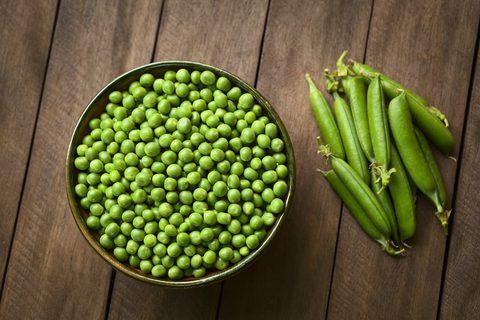

Feeding the Future: How Innovation is Reinventing the Protein Economy
We recently attended the Future of Protein Production summit, a packed event full of insights, big ideas, and emerging trends shaping the future of food. From national strategies to next-gen tech, the conversations made it clear: the shift to sustainable proteins is picking up pace, but there are still major challenges to solve. This round-up highlights some of the most exciting developments we saw, including Denmark’s ambitious approach to plant-based innovation, the rise of fermentation, and how technology is helping bridge the gap between great ideas and real-world products.
Denmark’s Leadership in Plant-Based Innovation: A Blueprint for the Future of Food
Denmark has positioned itself as a global leader in plant-based innovation, setting a bold example for how nations can align food production with sustainability goals. With a €200 million public investment through 2030, the country’s Plant-Based Food Action Plan, the first of its kind in the world, underscores a commitment to reducing agricultural emissions and promoting alternative proteins. Paired with a carbon tax on agriculture, Denmark’s strategy integrates government, farmers, and major industry players such as Arla and Danish Crown to drive systemic change.
A Collaborative Ecosystem for Food Innovation
Denmark’s model thrives on collaboration. Farmers are forming legume partnerships, supporting soil health and biodiversity, while 15% of the nation’s land is being allocated to nature restoration. The approach demonstrates how sustainability and innovation can coexist, backed by cross-sectoral alignment and strong public policy.
The UK and Global Perspectives
The UK faces its own food system challenges, notably importing 42% of its food. This dependency has driven a push for local production and supply chain resilience, particularly in the realm of alternative proteins. The BESOS Centre is emerging as a hub that merges AI, engineering biology, and fermentation to accelerate breakthroughs. Academic programs, including new PhD and master’s degree in sustainable protein, are nurturing the next generation of innovators.
However, major barriers remain: taste, texture, cost, and regulation continue to define the road to mainstream adoption.

Fermentation and Technological Breakthroughs
The fermentation frontier is expanding rapidly. Startups and research labs are developing feedstocks from CO₂, industrial byproducts, and food waste, turning emissions into ingredients. Precision fermentation now enables the creation of milk proteins from air and fungal proteins from yeast. Innovations such as 10-minute fermentation, micro extrusion, and clean-label ingredient development are transforming how we think about food production.
Investment, Scaling, and Regulation
Scaling deep tech innovations demands patient capital and strategic investors. Regions like Singapore and Australia currently lead with faster regulatory approval processes, though the forthcoming EU Biotech Act promises to streamline Europe’s timelines. To reduce capital expenditure and accelerate market entry, many companies rely on contract development and manufacturing organisations (CDMOs) for access to expertise and infrastructure.
Navigating Novel Food Regulation
In February 2025, the European Food Safety Authority (EFSA) released updated guidance detailing data requirements for novel protein submissions. These include toxicology, allergenicity, and nutrient stability studies. Successful approval will hinge on transparent data sharing and strategic regulatory engagement to ensure compliance and consumer trust.



Pet Food as a Launchpad
An emerging trend is the use of pet food markets as entry points for alternative protein companies. Regulatory pathways are faster, and commercialisation is often simpler. Choices between dry and wet biomass formats influence both logistics and sustainability metrics. Human food applications, by contrast, face stricter standards and longer approval timelines, but they also offer greater long-term impact.
Microbial Systems and Process Optimisation
Advancements in bioprocess engineering are critical to scaling production efficiently. Technologies like microbioreactors, flow cytometers, and real-time sensors for pH, dissolved oxygen, and biomass enable data-rich insights. The Design-Build-Test-Learn (DBTL) cycle has become the cornerstone of strain development and process optimisation.

Building Trust and Sectoral Collaboration
The alternative protein sector is rapidly professionalising. Stakeholders are prioritising intellectual property protection, public-private partnerships, and co-location strategies to share risk and expertise. Supply chain models vary, from licensing and joint ventures to full in-house production, but the unifying call is for honesty, transparency, and accountability in both business models and investor relations.
This convergence of science, policy, and entrepreneurship marks a pivotal moment for the future of food. Denmark’s leadership provides a powerful blueprint for how coordinated national strategies can accelerate the global transition toward sustainable, resilient, and delicious plant-based foods.
How We Can Help
We are uniquely positioned to accelerate innovation across the plant-based and alternative protein sectors. With decades of expertise in enzyme development, bioprocess optimisation, and custom biocatalyst solutions, we bridge the gap between scientific discovery and commercial scalability.
Our ready-made products and tailored enzyme technologies can enhance functionality, flavour, and nutritional profiles in plant-based foods while supporting clean-label and sustainable production goals. With integrated R&D-to-manufacturing capabilities and rapid enzyme development platform, we enable companies to shorten product development timelines, reduce costs, and meet evolving regulatory and consumer demands.
In a landscape driven by innovation and environmental responsibility, we are a trusted partner, empowering businesses to transform bold ideas into viable, market-ready products